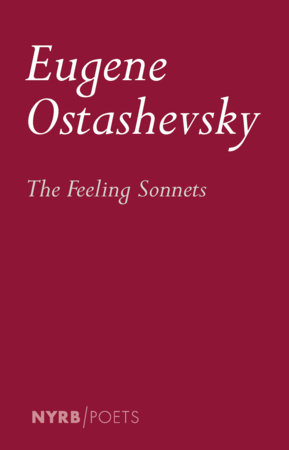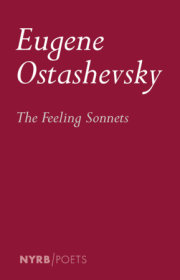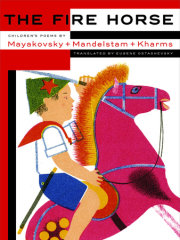“What does it take to reinvent the sonnet form altogether? In Eugene Ostashevsky’s case, it takes gumption, playfulness, a mastery of many languages, a wide range of intellectual reference, and above all, a whole lot of wit.” —Jake Marmer, Tablet
“Ostashevsky’s immense and multilingual opus of philosophy, language, pun and the absurd is a performative and rollicking ride.” —Jacqueline Saphra, The Poetry Review
“Energetic and allusive, humorous and multilingual, by turns aching and philosophical, these sonnets wheel down the page, full of wit and linguistic wonder, while Ostashevsky’s phonemic and semantic play among words and sounds in English, Russian, German, and other languages suggests and reveals freighted connections between language and place, nation, (im-)migration, generations, historical memory, and translation.” —Heather Green, Harriet Books, Poetry Foundation
“Feelings proliferate in The Feeling Sonnets, and first among them is the feeling that we have to ask what we mean by feeling. It is to feel his way toward an answer to that primary question that the brilliant poet Eugene Ostashevsky has written this collection of vivacious, witty, and anguished poems. As the poems unfold, language gets caught up in proliferative play. The poet flounders through fields of feeling, one felt word spilling out of another, one spelt word spelling another. Feeling moves from one cultural or linguistic context to another, doubling and redoubling the potential for meaning and the potency of meaning’s prolific uncertainty and occasional absurdity. And extending through the linguistic microsystem of vowels and consonants that shift meanings from place and place (and even nation to nation) is the exquisite sensibility of a poet, erudite, humble, and closely watching over those he loves. This is an extraordinary and beautiful book.” —Lyn Hejinian
“Eugene Ostashevsky is a multilingual language explorer. His Feeling Sonnets are an exhilarating and witty enquiry into the designs that language has on us as intellectual, domestic and historical beings. This is poetry as punning philosophy, both entertaining and deeply serious. This book is a tour de force, turning languages’ spotlights onto speech itself.” —Gwyneth Lewis
“This book is a timely reminder that our dying—but more importantly our living—at once prefigures and is prefigured by language. Here’s to singing along.” —Cai Draper, SPAM






